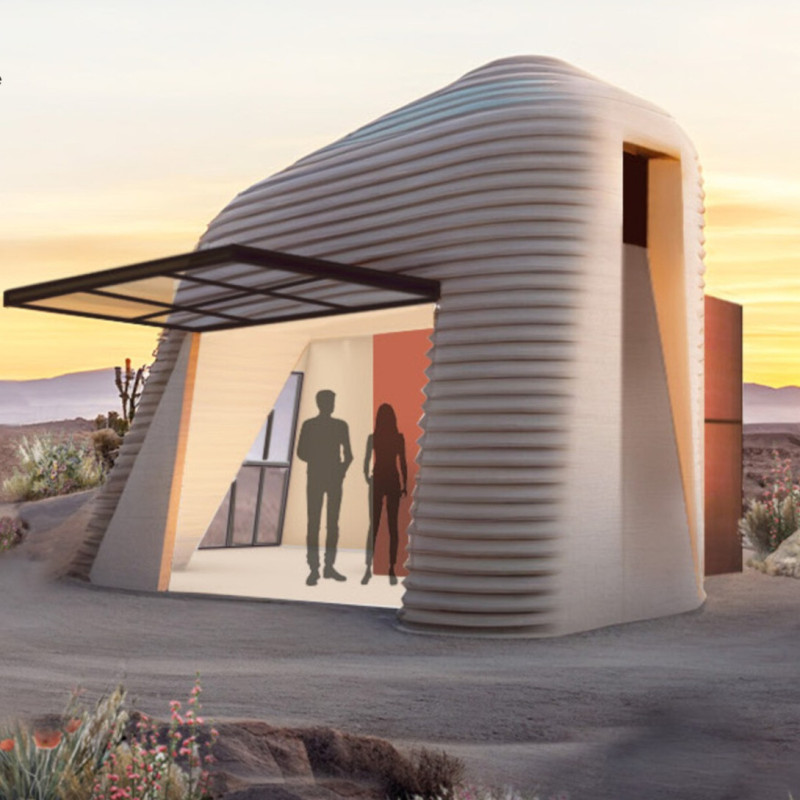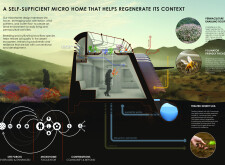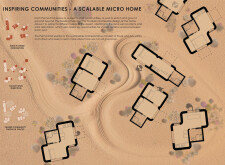5 key facts about this project
### Project Overview
The Desert Perma-Pod is situated in the Mojave Desert, intended for a professional couple transitioning to a lifestyle that respects and utilizes the arid environment. This micro-home integrates principles of sustainability and permaculture, functioning not only as a residence but also as a community center that fosters sustainable living practices. The design prioritizes affordability and self-sufficiency while emphasizing a reciprocal relationship with the surrounding landscape.
### Design Approach and Materiality
The construction of the Desert Perma-Pod employs advanced 3D printing technology using a superadobe technique, which compresses local soil into an eco-friendly building material. This approach minimizes environmental impact by cutting down on transportation emissions and supports local economies. The modular design allows for flexibility, where discrete units can be reconfigured to meet the changing needs of the residents. Natural elements such as wind and sunlight have been leveraged to enhance the interactions between the inhabitants and their environment, promoting ecological stewardship.
### Sustainable Features and User Experience
The project incorporates various sustainable elements, including rainwater harvesting systems that capture and filter water for household use and irrigation. Passive ventilation is achieved through strategically placed windcatchers, ensuring a comfortable indoor climate without reliance on mechanical air conditioning. Interior spaces are designed to be multifunctional, utilizing natural light through carefully positioned solar glass windows, and providing areas for work, rest, and social interaction. The integration of a permaculture-friendly roof and native planting areas plays a crucial role in supporting local biodiversity, which in turn contributes to the restoration of desert soil quality.
Distinctively, the Desert Perma-Pod serves as a community hub, facilitating workshops that promote collective sustainability knowledge. Its modular nature enables connections with adjacent units, fostering a scalable community model oriented toward sustainable living practices. Through its design and functionality, the project provides both immediate utility to its residents and a broader educational resource for the surrounding community.























































